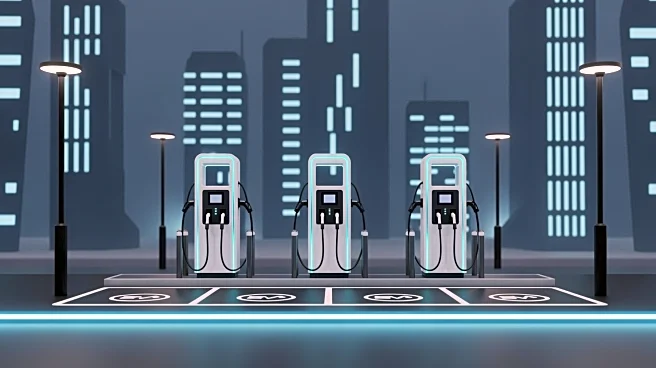What's Happening?
Sales of all-electric vehicles in the U.S. saw a significant decline in October following the expiration of federal incentives that provided up to $7,500 for EV purchases. Major automakers such as Ford,
Hyundai, Kia, and Toyota reported substantial drops in their EV sales. Ford experienced a 25% year-over-year decrease in its all-electric sales, with specific models like the Mustang Mach-E and F-150 Lightning seeing declines of 12% and 17%, respectively. Hyundai's Ioniq 5 and Ioniq 9 models also faced significant sales reductions, with drops of 80% and 71% from September to October. Despite these declines, hybrid vehicle sales for these companies showed growth, with Hyundai reporting a 41% increase in hybrid sales compared to the previous year.
Why It's Important?
The end of federal tax credits for electric vehicles marks a pivotal moment for the EV market in the U.S. The incentives had previously driven a surge in EV sales, and their expiration is expected to lead to a market adjustment. Automakers are now facing the challenge of maintaining sales momentum without the financial incentives that encouraged consumer purchases. This situation could lead to a shift in consumer behavior, with potential buyers reconsidering EV purchases due to higher upfront costs. The decline in EV sales could also impact the broader push towards electrification and the automotive industry's transition to sustainable energy solutions.
What's Next?
As the market adjusts to the absence of federal incentives, automakers may need to explore alternative strategies to attract consumers to electric vehicles. This could include offering their own incentives, enhancing vehicle features, or focusing on hybrid models that continue to show sales growth. The industry will be closely monitoring consumer responses and sales trends in the coming months to adapt their strategies accordingly.








